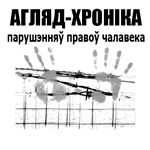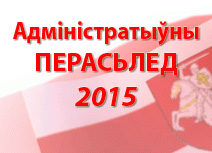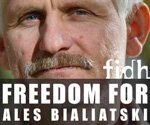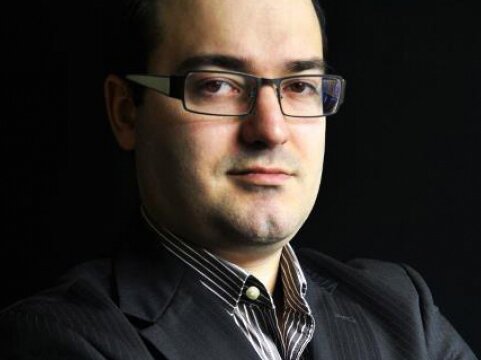
Quite often there is a mention of the European Union’s solidarity with political prisoners in Belarus. And what is the position in this regard of another great neighbor of our country – Russia? Piotr Maciążek – an expert in the field of energy security and the countries of the former Soviet Union, believes that the situation presents itself in a rather sorry state.
Piotr Maciążek: The EU relations with Belarus resemble a sine wave. Lukashenko first throws into jail political opponents, generating political judgments. And then begins to trade political prisoners. The European Union finally apply sanctions against Belarus. Even if sanctions do not always produce results, given that the EU is a collection of states, each of which has its own interests. The main objective of this political human trafficking is an attempt to remove the restrictions and sanctions. At the same time Belarus, at least economically, is increasingly gravitating towards integration with Russia. Privatization in Belarus, in fact, is introduced for Russian money. Taking all this into consideration, to allow for any changes in the country, Lukashenko has to be removed. From the point of view of the European Union, Lukashenko is not useful . Thus, multiple concessions on the part of Brussels, do not make sense.
– However, Lukashenko continues to trade political prisoners, what is more, he is quite successful.
Peter Maciążek: Indeed he is quite successful. In the field of relations between official Minsk and Brussels Lukashenko has repeatedly won. As far as Poland is concerned, and in this case I can say more – at the last, so called intrigue, headed by Radosław Sikorski – the Minister of Foreign Affairs of Poland; along with Guido Westerwelle, the Foreign Minister of Germany, they visited Minsk. It was a double visit. After that, however, there has been a complete change in the relationship. Poland was even accused of trying to reorganize the political system in Belarus. Much of the criticism fell on the heads of Polish services. And this indicates that such measures do not make sense. Regardless of any gestures made by Poland or the European Union, sooner or later, even if the situation changes, Lukashenko will change the rules of the game and will go back to Russia. Why? As I have already mentioned, the European Union does not have a single center of its foreign policy. It is true that there is the High Representative for Foreign Policy, Catherine Ashton. Her actions, however, are often limited solely to statements. In addition, a large part of the European Union countries are interested primarily in maintaining business relationships with Lukashenko. For example Slovenia, similarly Lithuania. In spite of the sanctions, countries maintain economic relations at a high level. This came to light at a moment when it was announced that the Belarusian goods can leave the ports of Lithuania and flip its transshipments into Russian ports. There is more of such examples. The list can be extended to countries with fairly concrete stance on human rights, including Germany. Many of the economic interests of this country is in Belarus. Hence, there is always a dilemma: economic interests, or human rights. And that’s what led to the failure of the EU policy towards Belarus.
– Moreover, political prisoners remain behind bars. Should Belarusians wait for international solidarity or on their own try to improve the situation in the country? Are there still in Belarus oppositional forces capable of doing it?
Peter Maciążek: When we talk about political prisoners, here Belarusians should definitely take care of themselves. There should be set a strong front, exerting pressure on the authorities. But Belarus still lacks it. Belarus has almost no opposition. Slight attempts to create civil society were seen during the economic crisis of 2011. However, after normalization of the situation, with the help of Russian loans that turned out. There are no recent reports of Internet activity of citizens. The EU aid in the release of political prisoners is crucial. Many is done in this field by the Polish deputies. But again – countries of the European Union must take care of their business and its policies. Let’s say, from the Polish perspective, there should be definite cut in relations with Lukashenko and any close contact should be stopped, there should be entered isolation. Finally, changes in Belarus are only possible, when economic problems appear. Therefore, notwithstanding any attempts at dialogue with Lukashenka, or engage in a business with him – he is still going towards Russia. Therefore, such kind of politics towards Belarus is harmful.
– Is Russia using it? Is the situation of political prisoners in Russia clear?
Piotr Maciążek: Clearly, Belarusian prisoners of conscience cannot hope for the help and solidarity on the part of Russia. In the post-Soviet area, the only example of solidarity of Kremlin with political prisoner is Yulia Tymoshenko. It is however not a sincere support but only a political game, which may bring profits to Russia. In the case of Belarus, in Russia’s interest is that prisoners of conscience remain behind bars. Moscow wants to preserve socio-political situation. And from year to year we observe increasing dependence of Belarus on Russian capital and resources. I believe it’s quite sad, because in Belarus there are more than ten political prisoners. Russia has no interest in their release. And as to the European Union, I think it should understand that it is unacceptable to allow Lukashenko to trade their freedom.
palitviazni.info





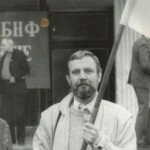
 Belarusian
Belarusian English
English Русский
Русский polski
polski


